-
The Soviet feat and Trump’s ignorance
In commemoration of the Nazi surrender ending the second world war on May 8, 1945.
-
The Buchenwald concentration camp was liberated by Communist prisoners: The Fifteenth Newsletter (2025)
Eight decades ago, communist prisoners organised and liberated the Nazi concentration camp Buchenwald, where they were held. As the far right of a special type rises across Europe, these heroic victories of anti-fascist resistance are under attack.
-
American inquisition part 1: The origins of the Cold War and McCarthyism
The ghost of “Tail-Gunner Joe” McCarthy is haunting the U.S. Congress.
-
On The Rewriting of History
[Britannica’s revisionist] distortions of the history of the Vietnamese struggle are just as radical and just as misleading [as those about the Soviet Union]. Here we may draw some valuable lessons about the hidden content of form: how apparently neutral principles of organization may shape meaning.
-
Today’s Lenin
The Rosa Luxemburg Stiftung, based in Berlin, recently issued a bulletin entitled, “Seven Reasons Not to Leave Lenin to Our Enemies.” This was intriguing because Rosa was one of Lenin’s sternest critics, and during the Cold War era, her works found print in the United States as vindication of current U.S. policies against the Soviet Union.
-
Seven reasons not to leave Lenin to our enemies
The Left has tossed Lenin’s corpse to the victors of history—both the Stalinists and their liberal opponents.
-
October Revolution: The first general recognition of women’s equality in history
The land of the October revolution: a country of women walking on the road to emancipation
-
Lenin’s ‘Last Testament’: The prophetic last words of a Marxist for our times
The myth that Lenin led to Stalin is exposed by Lenin’s Last Testament which argues for more democracy and removing Stalin from power, writes John Westmoreland.
-
Five of Lenin’s insights that are more pertinent than ever
Lenin’s understanding of the workers state must also take into account the adjustments that had to be made in the post-revolutionary period, when it became clear that emphasis had to be put on developing the productive forces and an efficient state that could guide the process of destroying the global inequalities between imperialist and imperialized nations.
-
Lenin: Architect of the Worker-Peasant Alliance
Among the many seminal theoretical contributions made by Lenin to Marxism was his pioneering of the concept of the worker-peasant alliance for a socialist revolution.
-
A hundred years since we lost Comrade Lenin
What does Lenin say to us in today’s post-Soviet world and what is his legacy, asks VIJAY PRASHAD. VLADIMIR ILYICH ULANOV
-
Learning from Lenin today
One hundred years since Lenin’s death, Nigerian socialist Abiodun Olamosu describes of the revolutionary on his own political development. As the preeminent organiser of the Russian revolution, Lenin helped to determine the course of Olamosu’s life in Nigeria. Olamosu explores the development of Lenin’s work and legacy. He regards Stalin’s rise to power, and the Soviet Union, as an abomination to the body of ideas of Marxism and socialist internationalism.
-
Lenin and his times
This is an extract from the introduction to Alex Snowdon’s forthcoming book on Lenin, to be published by Counterfire, where he outlines the key stages of Lenin’s life as a revolutionary.
-
Why Reimagine Soviet Georgia?
We must redefine Soviet Georgia beyond mere nostalgia—not to consign it to the past but to invigorate it, making it a dynamic force in shaping new visions for the world.
-
Blinken factchecked: X users give U.S. Secretary of State history lesson
In a post on X, U.S. Secretary of State Anthony Blinken accuses Russia of manipulating history by actually twisting facts himself.
-
Atomic bombing of Japan was not necessary to end WWII. U.S. gov’t documents admit it
U.S. government documents admit the atomic bombing of Hiroshima and Nagasaki was not necessary to end WWII. Japan was on the verge of surrendering. The nuclear attack was the first strike in Washington’s Cold War on the Soviet Union.
-
End of Cold War Illusions
In this reprint of the February 1994 “Notes from the Editors,” former MR editors Harry Magdoff and Paul M. Sweezy ask: “The United States could not have won a more decisive victory in the Cold War. Why, then, does it continue to act as though the Cold War is still on?”
-
Requiem for a dream: 100 years after the founding of the USSR
The worst crime the USSR committed, the one for which it will never be forgiven, was to have been a shared hope for a more just, more dignified and more humane society.
-
You should thank this Russian Naval Officer that you and your loved ones are alive today
Let’s hope there are more Vasily Arkhipovs out there today—we need them now more than ever.
-
Ukrainian Nationalists have long history of anti-semitism which the Soviet Union tried to combat
While Ivy League professors equate the Soviet Union with Nazi Germany, the Soviets fought the Nazis and ended violent anti-Jewish pogroms—which now threaten to return.


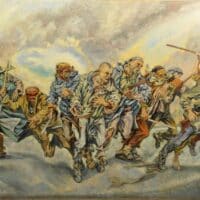


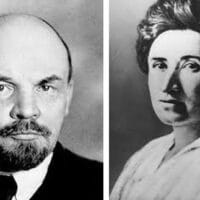
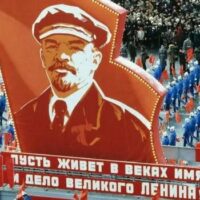
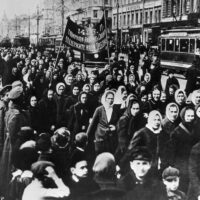
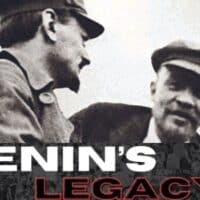
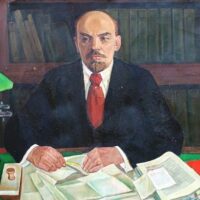


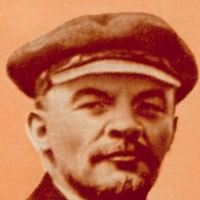
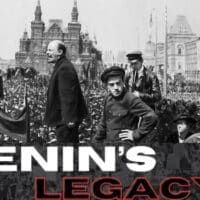

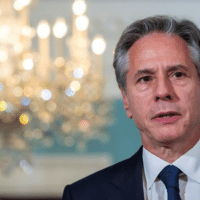
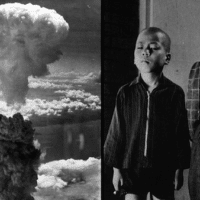

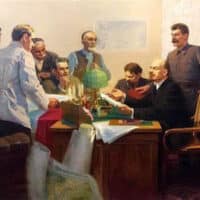
![[Source: gasedal.wordpress.com]](https://mronline.org/wp-content/uploads/2022/12/Screenshot-2022-12-27-at-125407-PM-200x200.png)
![Jewish girl flees in terror in Lviv during anti-Jewish pogrom. [Source: wikipedia.org]](https://mronline.org/wp-content/uploads/2022/10/Screen-Shot-2022-10-20-at-82919-PM-200x200.png)